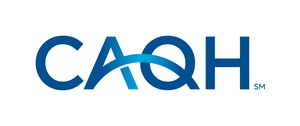
WASHINGTON, Dec. 15, 2020 /PRNewswire/ -- CAQH today released the first CAQH Pharmacy Services Index, a report that examines levels of automation among pharmacy benefit managers (PBMs) for three common administrative transactions. This initial research suggests that PBMs generally conduct a higher percentage of these transactions electronically than medical plans, likely due to different workflows, volumes and levels of transaction complexity.
"The initial data indicates that PBM administrative transactions are generally more automated than similar medical transactions, but this is just the first step," said April Todd, CAQH Senior Vice President for CORE and Explorations. "Based on these preliminary findings, we hope to expand our research to include providers and additional transactions to understand the differences in how administrative functions are conducted and to pinpoint opportunities for greater automation."
Data for the 2019 CAQH Pharmacy Services Index was contributed by PBMs that represent 65% of all covered lives in the U.S. The report presents findings on three transaction types:
- Eligibility and benefit verification. PBMs conduct 94% of eligibility and benefit verifications electronically. This high level of automation is likely because eligibility is verified during the real-time adjudication process for pharmacy claims.
- Electronic prior authorization (ePA). 75% of pharmacy prior authorizations are fully electronic and use the National Council for Prescription Drug Programs (NCPDP) SCRIPT electronic standard for prior authorizations and attachments.
- Claim submission. This is the most widely adopted, fully electronic transaction reported at nearly 100% for both PBMs (99%) and medical plans (96%).
In the coming year, CAQH will seek to work with PBMs, other partners in the pharmacy space and providers to collect information on the cost of performing administrative transactions, the return on investment of automation and differences in the medical and pharmacy workflows.
"Administrative complexity drains $350 billion from our healthcare system every year, and incremental increases in automation can significantly reduce these costs," said Todd. "We are conducting this research to provide stakeholders with a roadmap to reduce manual processes, improve information exchange, focus more resources on patient care and streamline the healthcare system for all of us."
Read the 2019 CAQH Pharmacy Services Index.
About CAQH
For more than 20 years, CAQH has helped nearly 1,000 health plans, 1.6 million providers, government entities and vendors connect, exchange information and operate more efficiently. CAQH technology-enabled solutions and its Committee on Operating Rules for Information Exchange (CORE) bring the healthcare industry together to make sharing business information more automated, predictable and consistent. CAQH Explorations researches opportunities to reduce the burden of manual processes in healthcare administration. Visit www.caqh.org and follow us on Twitter: @caqh.
SOURCE CAQH






Share this article